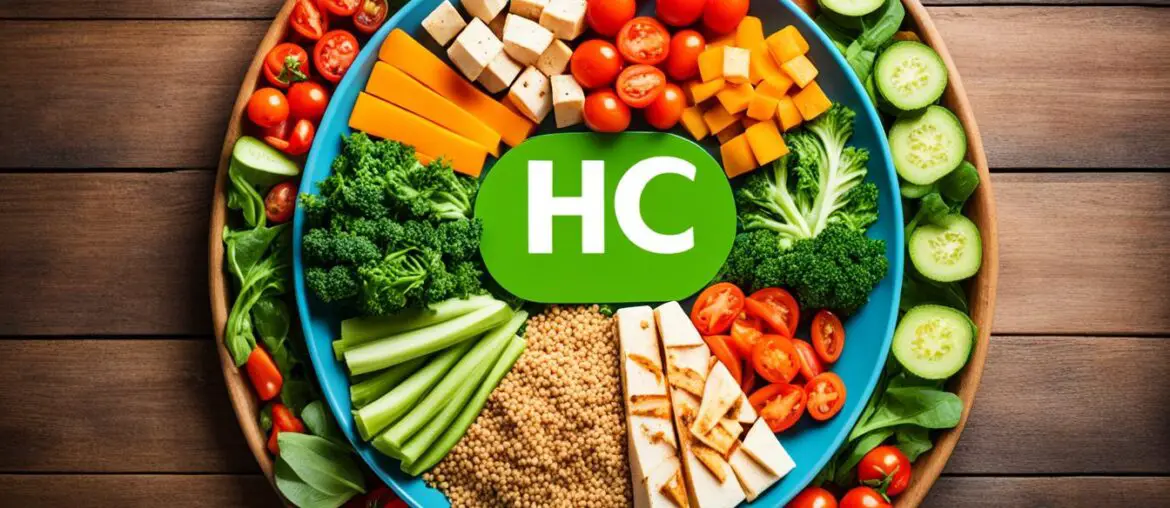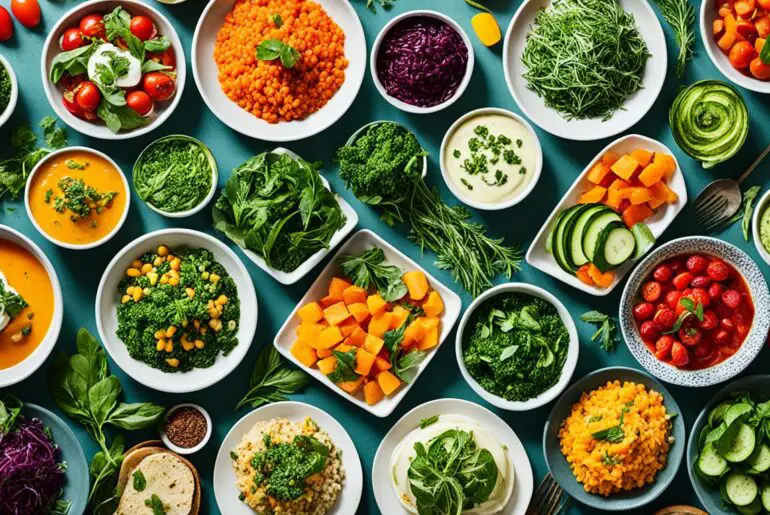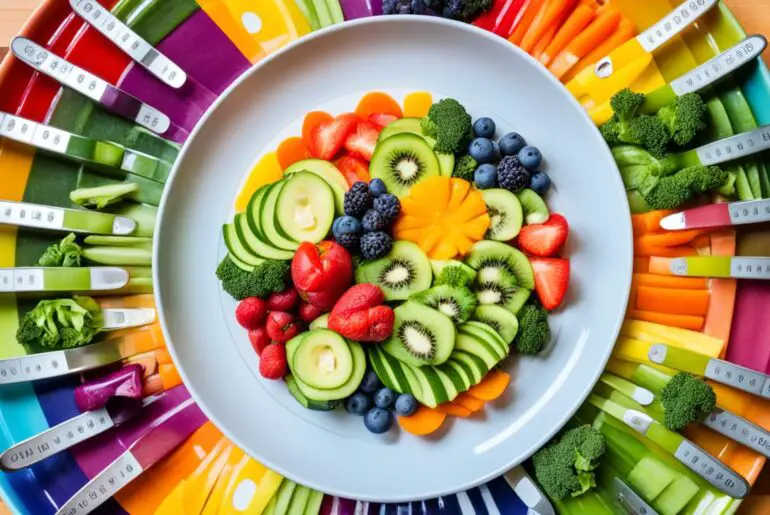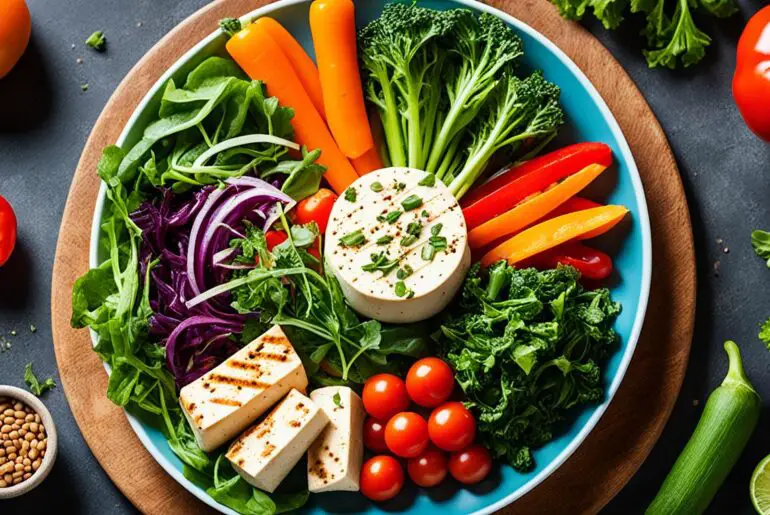Are you a vegetarian interested in trying the HCG diet but concerned about the emphasis on animal protein? Don’t worry, you’re not alone. Many vegetarians face the challenge of finding suitable alternatives when it comes to diets that traditionally rely on meat-based sources of protein. But here’s the question: can vegetarians successfully participate in the HCG diet? Is it possible to follow a vegetarian-friendly version of this popular weight loss program? Let’s explore how vegetarians can adapt the HCG diet to suit their dietary preferences and still achieve successful weight loss.
Vegetarian Protein Sources for HCG Diet
Meeting the protein requirements of the HCG diet can be a challenge for vegetarians. However, there are numerous plant-based protein sources that can be incorporated into the diet, ensuring adequate protein intake without compromising vegetarian principles.
Here are some vegetarian-friendly protein sources that can be included in the HCG diet:
- Protein Powders: Vegetarian protein powders, such as pea protein or soy protein, are convenient options for increasing protein content in smoothies or shakes. They are easily digestible and provide a complete amino acid profile.
- Tofu: Tofu is a versatile soy-based protein that can be used in a variety of dishes, including stir-fries, soups, and salads. It absorbs flavors well and offers a substantial amount of protein per serving.
- Tempeh: Made from fermented soybeans, tempeh is an excellent source of protein and essential amino acids. It can be grilled, marinated, or crumbled into various recipes as a meat substitute.
- Legumes: Legumes, such as lentils, chickpeas, and black beans, are rich in protein and fiber, making them ideal for vegetarian HCG diet. They can be included in soups, salads, or even made into delicious veggie burgers.
- Seeds: Chia seeds, hemp seeds, and flaxseeds are all excellent sources of plant-based protein. Sprinkling them on salads, yogurt, or blending them into smoothies can add an additional protein boost to the diet.
- Dairy Products: Vegetarians who include dairy products in their diet can opt for low-fat cottage cheese, Greek yogurt, or skim milk as protein sources. These dairy options are not only high in protein but also rich in calcium.
Incorporating these vegetarian protein sources into the HCG diet ensures that vegetarians can meet their protein needs while following the plan. By diversifying their protein options, vegetarians can enjoy a plant-based HCG diet without compromising their dietary preferences.
Sample Vegetarian Protein Comparison Table
| Protein Source | Protein Content (Per 100g Serving) |
|---|---|
| Tofu | 8g |
| Tempeh | 20g |
| Lentils | 9g |
| Chickpeas | 19g |
| Quinoa | 4g |
| Greek Yogurt | 10g |
Vegetarian Meal Plan for HCG Diet
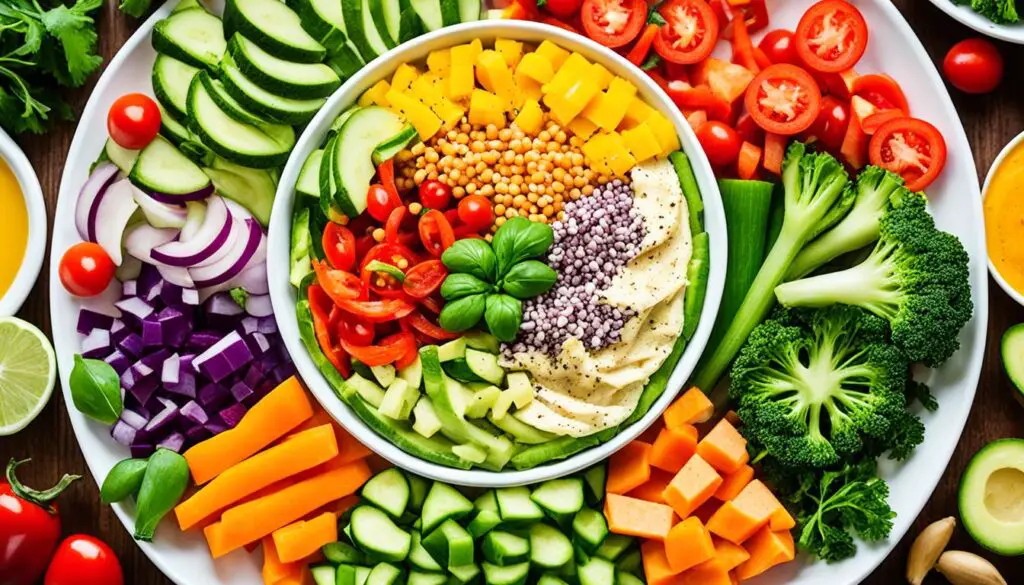
Adapting the HCG diet for vegetarians requires careful meal planning. As a vegetarian, it’s essential to create a meal plan that meets the requirements of the HCG diet while excluding animal protein.
To ensure a balanced and nutritious vegetarian meal plan for the HCG diet, it’s important to include a variety of vegetarian protein sources. Some excellent options include:
- Tofu
- Tempeh
- Legumes
- Dairy products
In addition to protein, your meal plan should also incorporate a selection of vegetables and fruits to provide essential nutrients. It is important to remember that certain vegetables should be limited due to their higher carbohydrate content. To supplement your meal plan, you can add limited servings of carbs like breadsticks or toast.
By carefully planning your meals and incorporating these vegetarian-friendly options, you can successfully follow the HCG diet and achieve your weight loss goals.
Investing time and effort in creating a well-balanced vegetarian meal plan will not only ensure that you meet the dietary requirements of the HCG diet but also contribute to your overall health and well-being.
Tips for Vegetarian HCG Diet Success
Following the HCG diet as a vegetarian can be challenging, but with the right strategies, you can achieve success. Here are some tips to help you navigate the vegetarian HCG diet and achieve your weight loss goals:
- Focus on Plant-Based Protein: As a vegetarian, it’s important to ensure you’re getting enough protein from plant-based sources. Include protein-rich foods such as tofu, tempeh, legumes, and protein powders in your meals. These alternatives can help you meet your protein requirements on the HCG diet.
- Incorporate Variety of Vegetables and Fruits: A diverse range of vegetables and fruits is essential for a balanced diet. Include a variety of colors and types to ensure you’re getting a wide range of nutrients. Aim to fill half of your plate with vegetables and incorporate fruits as healthy snacks.
- Follow Prescribed Calorie Limits: The HCG diet involves calorie restriction, so it’s crucial to abide by the prescribed limits. Monitor your calorie intake and portion sizes to ensure you’re staying within the recommended range. This will help facilitate weight loss.
- Meal Prep and Plan Ahead: Prepare your meals in advance to ensure you have vegetarian-friendly options readily available. This will help you avoid reaching for unhealthy snacks or resorting to non-compliant food choices. Plan your meals and snacks for the week, and consider batch cooking for convenience.
- Stay Hydrated: Hydration is essential for overall health, but it’s especially important during the HCG diet. Drink plenty of water throughout the day to stay hydrated and help curb hunger. Additionally, staying hydrated can support your body’s natural detoxification processes.
- Monitor Portion Sizes: Portion control plays a significant role in weight loss. Be mindful of your portion sizes and use measuring cups or a food scale to ensure accuracy. Overeating, even on compliant foods, can hinder your progress.
By implementing these tips, you can overcome the challenges of following the HCG diet as a vegetarian. Stay consistent, stay motivated, and remember to consult with a healthcare provider or nutritionist for personalized guidance and support on your journey.
Vegetarian Protein Sources for HCG Diet
| Protein Source | Protein Content (per 100g) |
|---|---|
| Tofu | 8g |
| Tempeh | 19g |
| Legumes (e.g., lentils, chickpeas) | 9-20g |
| Protein Powders (e.g., pea protein, soy protein) | 15-25g |
Protein Replacements for Vegetarians on HCG Diet
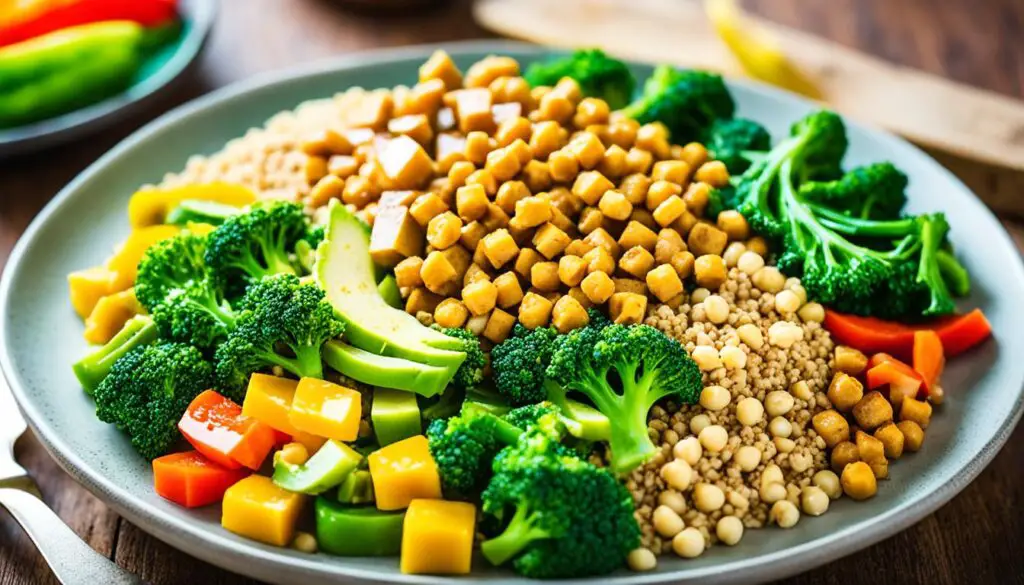
As a vegetarian on the HCG diet, it’s essential to find suitable protein replacements to meet your dietary needs and ensure successful weight loss. Fortunately, there are several vegetarian-friendly protein options that can be incorporated into your HCG diet plan.
- Vegetarian Protein Powders: These powders are derived from plant-based sources like peas, hemp, or brown rice. They are a convenient way to increase your protein intake and can be easily added to shakes or smoothies.
- Tofu: This soy-based product is a versatile protein source that can be used in various recipes. It absorbs flavors well and can be grilled, stir-fried, or used as a meat substitute in dishes.
- Tempeh: Similar to tofu, tempeh is made from soybeans but has a denser texture. It can be marinated or seasoned and used in stir-fries, sandwiches, or salads.
- Legumes: Including beans, lentils, and chickpeas in your diet provides a good amount of protein. These legumes can be incorporated into soups, stews, or salads for a nutritious and filling meal.
- Dairy Products: Cottage cheese is a great option for vegetarians on the HCG diet. It’s low in carbs and high in protein, making it an ideal choice. Additionally, Greek yogurt and low-fat cheese can also be included in moderation.
By replacing animal protein with these vegetarian-friendly options, you can adhere to the HCG diet while still meeting your protein requirements. Remember to choose protein sources that are low in carbs and align with the HCG diet guidelines for optimal weight loss.
Sample Table: Protein Content of Vegetarian Replacements
| Protein Source | Protein Content per 100g |
|---|---|
| Vegetarian Protein Powder | 20g |
| Tofu | 8g |
| Tempeh | 19g |
| Legumes (e.g., beans, lentils, chickpeas) | 8-10g |
| Cottage Cheese | 11g |
Table: Protein Content of Vegetarian Replacements for the HCG Diet
Remember, it’s important to consult with a healthcare provider or registered nutritionist to customize your HCG diet plan and ensure it aligns with your specific dietary needs. With the right protein replacements and proper guidance, vegetarians can successfully follow the HCG diet and achieve their weight loss goals.
Vegetarian Substitutes for Meat on HCG Diet
As a vegetarian on the HCG diet, it’s important to find suitable substitutes for meat that align with your dietary restrictions. Luckily, there are plenty of vegetarian-friendly options available that can provide the necessary protein to support your weight loss goals. Here are some great alternatives to meat that you can incorporate into your HCG diet:
| Vegetarian Substitutes | Protein Content |
|---|---|
| Tofu | Approximately 8 grams per 3.5 ounces |
| Tempeh | Approximately 14 grams per 3.5 ounces |
| Legumes | Varies depending on the type (e.g., lentils, chickpeas, beans) |
| Dairy products like cottage cheese | Approximately 12 grams per 0.5 cup |
These vegetarian substitutes can be used in place of meat in your HCG diet meals. Their protein content can help you meet your nutritional needs while still following the HCG diet guidelines. Experiment with different recipes and incorporate these substitutes into your meal plan to add variety and flavor.
Remember, it’s important to ensure that these substitutes are prepared in a way that aligns with the low-calorie and low-fat requirements of the HCG diet. Be mindful of portion sizes and consider consulting with a healthcare provider or nutritionist for personalized guidance.
Incorporating vegetarian substitutes for meat in your HCG diet can be a delicious and rewarding experience. These alternatives provide the necessary protein while still allowing you to adhere to your vegetarian lifestyle. By making informed choices and creatively preparing your meals, you can successfully participate in the HCG diet and achieve your weight loss goals.
Incorporating Dairy Products in Vegetarian HCG Diet
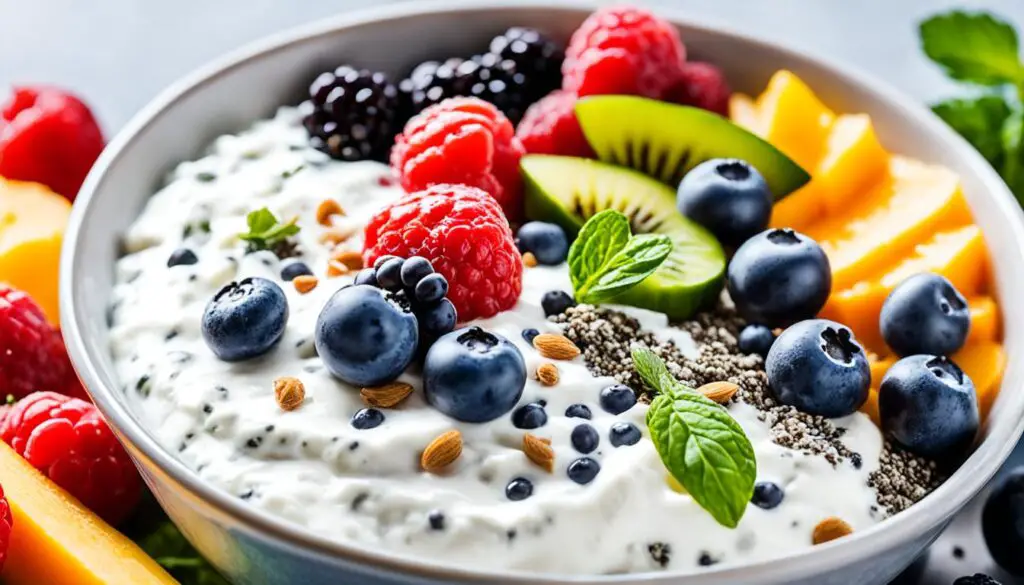
While following a vegetarian-friendly HCG diet, some individuals may choose to incorporate dairy products into their meal plan. However, it is crucial to select low-fat, low-carb options that align with the HCG diet requirements.
One popular dairy product that can be included is cottage cheese. Cottage cheese is not only a good source of protein but also provides essential nutrients such as calcium and B-vitamins. It can be enjoyed as a standalone snack or incorporated into various HCG diet-friendly recipes.
In addition to cottage cheese, organic milk can also be used as a protein substitute for vegetarians on the HCG diet. It is important to choose organic varieties to avoid potential hormone-related impacts on metabolism. Organic milk offers a good source of protein and can be consumed alongside other vegetarian-friendly options to meet the HCG diet’s dietary needs.
When incorporating dairy products into the vegetarian HCG diet, it is essential to be mindful of portion sizes and ensure that the chosen dairy products fit within the prescribed calorie limits. By doing so, vegetarians can enjoy the benefits of dairy while successfully adhering to the HCG diet protocols.
Summary:
Incorporating dairy products like cottage cheese and organic milk into a vegetarian HCG diet can provide vegetarians with necessary protein, calcium, and other essential nutrients. It’s important to choose low-fat, low-carb options and be mindful of portion sizes. By incorporating dairy products mindfully, vegetarians can enjoy the benefits of dairy while meeting the dietary needs of the HCG diet.
Other Considerations for Vegetarians on HCG Diet
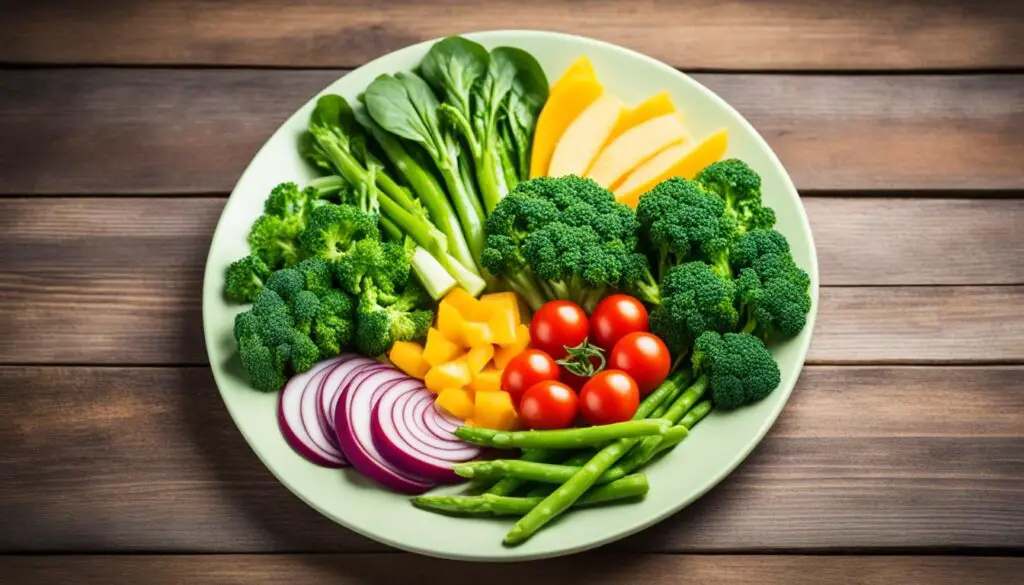
While following the HCG diet as a vegetarian, there are a few additional factors that need to be considered to ensure success and maximize results. Here are some key points for vegetarians on the HCG diet:
A Well-Balanced Diet and Essential Nutrients
As a vegetarian on the HCG diet, it’s crucial to ensure that you are getting all the essential vitamins and minerals your body needs. A well-balanced diet that includes a variety of vegetables, fruits, whole grains, and plant-based protein sources is essential. If needed, you can also consider taking supplements to meet your nutritional requirements.
Calorie Intake and Portion Sizes
It’s important for vegetarians on the HCG diet to pay close attention to their calorie intake and portion sizes. Although the diet restricts daily calorie consumption, it’s essential to ensure that you are still meeting your body’s energy needs. Monitoring portion sizes and using portion control tools can help you stay within the prescribed limits and achieve optimal results.
Reading Labels and Choosing Wisely
When following the HCG diet as a vegetarian, it’s crucial to read labels on packaged and processed foods carefully. Avoid products that contain excess sugar, fat, or artificial additives. Opt for whole, natural, and organic options whenever possible to support your weight loss journey and overall health.
Incorporating a well-balanced diet, paying attention to calorie intake and portion sizes, and making informed food choices are important considerations for vegetarians on the HCG diet.
By being mindful of these additional factors, vegetarians can successfully navigate the HCG diet and achieve their weight loss goals while maintaining a plant-based lifestyle. Remember to consult with a healthcare provider or nutritionist for personalized guidance and support throughout your journey.
Vegetarian HCG Diet Staples
| Food Group | Examples |
|---|---|
| Plant-based Protein | Tofu, tempeh, legumes, vegetarian protein powders |
| Vegetables | Spinach, kale, broccoli, tomatoes |
| Fruits | Apples, oranges, strawberries, grapefruit |
| Whole Grains | Brown rice, quinoa, oats |
| Dairy or Dairy Alternatives | Low-fat cottage cheese, almond milk |
| Healthy Fats | Avocado, nuts, seeds, olive oil |
This table provides a list of vegetarian-friendly options that can be incorporated into the HCG diet. By including these staples in your meal planning, you can create nutritious and satisfying meals while adhering to the HCG diet guidelines.
Maintaining Weight Loss After Vegetarian HCG Diet
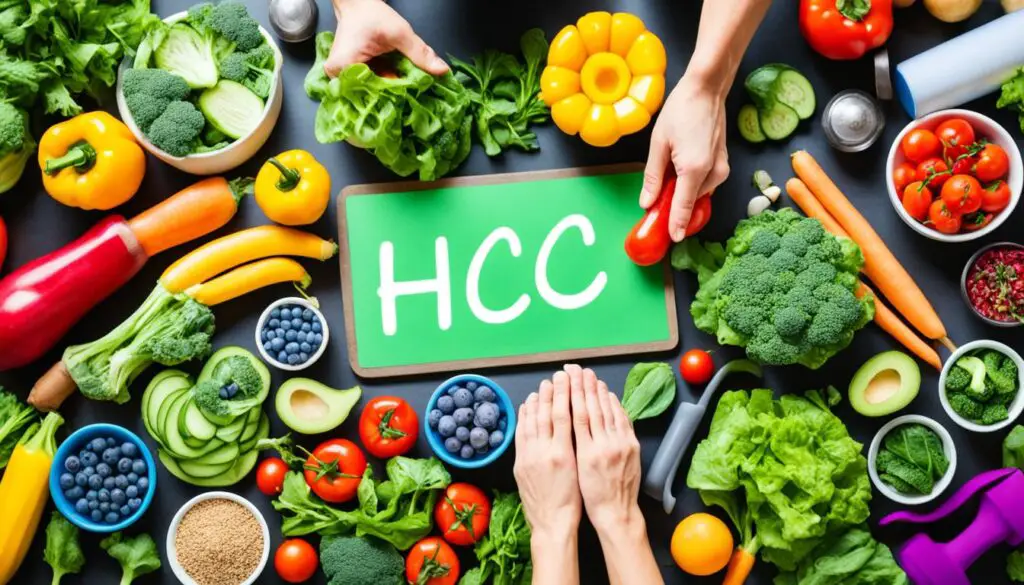
After completing the HCG diet, it’s crucial to focus on maintaining weight loss. This applies to vegetarians as well. Gradually reintroducing sugars and starchy foods while monitoring portion sizes can help prevent rapid weight gain. Incorporating regular exercise and adopting healthy eating habits can also contribute to long-term weight maintenance. By implementing these strategies, vegetarians can sustain their weight loss achievements after completing the HCG diet.
It’s important to remember that weight loss is not a one-time event but an ongoing journey. After the successful completion of the HCG diet, individuals need to establish new habits and behaviors to maintain their desired weight. Here are some tips for maintaining weight loss after the vegetarian HCG diet:
- Gradually reintroduce sugars and starchy foods: While it may be tempting to indulge in these foods after the strict phase of the HCG diet, it’s important to reintroduce them slowly and in moderation. This can help prevent sudden weight gain and the rebound effect.
- Monitor portion sizes: Portion control plays a significant role in weight maintenance. Pay attention to serving sizes and avoid overeating, even with healthier food choices.
- Incorporate regular exercise: Engaging in regular physical activity not only helps burn calories but also improves overall fitness and metabolism. Find activities you enjoy and make them a part of your daily routine.
- Adopt healthy eating habits: Focus on consuming a balanced diet that includes a variety of nutrient-rich foods. Incorporate plenty of fruits, vegetables, whole grains, and lean proteins into your meals. Avoid processed foods and limit added sugars and unhealthy fats.
- Maintain a positive mindset: Weight maintenance requires a positive attitude and a sustainable approach. Celebrate your achievements, acknowledge any setbacks, and stay motivated to make healthy choices.
By following these guidelines, vegetarians can successfully maintain their weight loss after completing the HCG diet. Remember, consistency and commitment are key to long-term success. Consult with a healthcare provider or registered dietitian for personalized advice and support on your weight maintenance journey.
Vegetarian HCG Diet Meal Plan Example
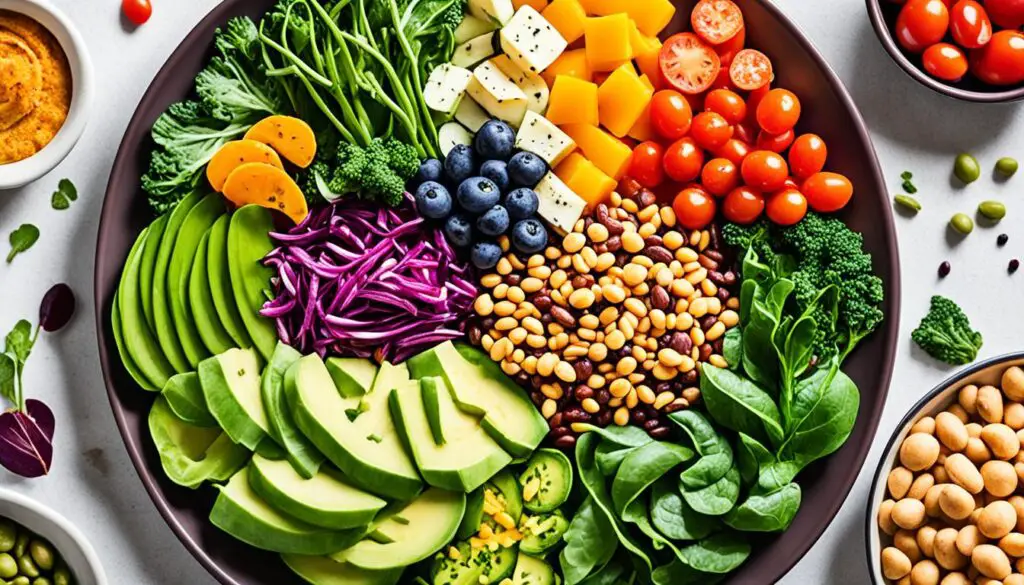
To successfully follow the vegetarian HCG diet, it’s crucial to have a well-planned meal plan that includes a variety of protein sources, vegetables, fruits, and limited servings of carbs. Here is an example of a plant-based HCG diet meal plan:
Day 1
- Breakfast: Scrambled tofu with spinach and mushrooms
- Lunch: Mixed green salad with chickpeas and grilled vegetables
- Snack: Celery sticks with almond butter
- Dinner: Baked tempeh with steamed broccoli and cauliflower
- Snack: Sliced strawberries with a dollop of Greek yogurt
Day 2
- Breakfast: Protein-rich smoothie with almond milk, banana, and plant-based protein powder
- Lunch: Quinoa salad with roasted vegetables and a sprinkle of pumpkin seeds
- Snack: Carrot sticks with hummus
- Dinner: Lentil curry with cauliflower rice
- Snack: Apple slices with cashew butter
Day 3
- Breakfast: Chia seed pudding made with almond milk and topped with berries
- Lunch: Grilled portobello mushroom burger with lettuce, tomato, and a side of sweet potato fries
- Snack: Roasted edamame
- Dinner: Vegetable stir-fry with tofu and brown rice
- Snack: Mixed nuts
Remember to drink plenty of water throughout the day and consult with a healthcare provider or nutritionist for personalized guidance. By following a vegetarian HCG diet meal plan like this, you can stay on track with your weight loss goals while enjoying a plant-based lifestyle.
Conclusion
Successfully following the HCG diet as a vegetarian requires careful meal planning and protein substitutes. By incorporating vegetarian-friendly options and being mindful of calorie intake, vegetarians can achieve their weight loss goals on the HCG diet. It is important to consult with a healthcare provider or nutritionist for personalized guidance and support throughout the diet journey.
With determination and adherence to the HCG diet principles, vegetarians can experience successful weight loss and improve their health. By carefully selecting vegetarian protein sources, such as tofu, tempeh, and legumes, and incorporating a variety of vegetables and fruits, vegetarians can meet the nutritional requirements of the HCG diet.
Remember, the HCG diet is a low-calorie regimen. It is crucial to monitor portion sizes, choose low-carb options, and follow the prescribed calorie limits. Additionally, staying hydrated and incorporating regular exercise can enhance the weight loss results for vegetarians.
In conclusion, the vegetarian HCG diet offers a viable option for weight loss for those following a plant-based lifestyle. By adapting the meal plan, incorporating vegetarian protein sources, and maintaining a disciplined approach, vegetarians can achieve successful weight loss on the HCG diet. The key is to plan meals mindfully, consult with healthcare professionals when needed, and stay committed to the journey of improved health and well-being.
FAQ
How can vegetarians do the HCG diet?
Vegetarians can participate in the HCG diet by making specific substitutions to the meal plan. By incorporating vegetarian protein sources and carefully planning meals, vegetarians can successfully follow the HCG diet.
What are some vegetarian protein sources for the HCG diet?
Vegetarian protein sources for the HCG diet include tofu, tempeh, legumes, seeds, and dairy products like cottage cheese. These options can help vegetarians meet their protein requirements while on the HCG diet.
How can vegetarians adapt the HCG diet with a vegetarian meal plan?
Vegetarians can adapt the HCG diet by planning meals that include a variety of vegetarian protein sources such as tofu, tempeh, legumes, and dairy products. Additionally, incorporating a selection of vegetables, fruits, and limited servings of carbs can help meet the HCG diet requirements.
What are some tips for vegetarian success on the HCG diet?
Tips for vegetarian success on the HCG diet include focusing on getting enough protein from plant-based sources, incorporating a variety of vegetables and fruits, and following the prescribed calorie limits. Meal prepping and planning ahead, staying hydrated, and monitoring portion sizes are also essential for success.
What are some protein replacements for vegetarians on the HCG diet?
Protein replacements for vegetarians on the HCG diet include vegetarian protein powders, tofu, tempeh, legumes, and dairy products like cottage cheese. These options can be used in place of the animal protein recommended in the traditional HCG diet.
What are some vegetarian substitutes for meat on the HCG diet?
Vegetarian substitutes for meat on the HCG diet include tofu, tempeh, legumes, and dairy products like cottage cheese. These alternatives can provide the necessary protein while still aligning with the dietary restrictions of the HCG diet.
How can vegetarians incorporate dairy products in the HCG diet?
Vegetarians can incorporate dairy products in the HCG diet by choosing low-fat, low-carb options such as cottage cheese. Organic milk can also be used as a protein substitute, but it’s important to choose organic varieties to avoid potential hormone-related impacts on metabolism.
What other considerations should vegetarians have on the HCG diet?
Vegetarians on the HCG diet should ensure they are getting essential vitamins and minerals through a well-balanced diet or supplements. They should also be mindful of their calorie intake and portion sizes, read labels on packaged and processed foods to avoid excess sugar and fat, and consult with a healthcare provider or nutritionist for personalized guidance and support.
How can vegetarians maintain weight loss after the HCG diet?
To maintain weight loss after the HCG diet, vegetarians can gradually reintroduce sugars and starchy foods while monitoring portion sizes. Regular exercise and adopting healthy eating habits are also important for long-term weight maintenance.
Can you provide an example of a vegetarian HCG diet meal plan?
A vegetarian HCG diet meal plan may include protein sources like tofu, tempeh, and legumes, paired with a variety of vegetables and fruits. Limited servings of carbs like breadsticks or toast can also be included. Meal planning in advance and monitoring portion sizes are crucial for success.

